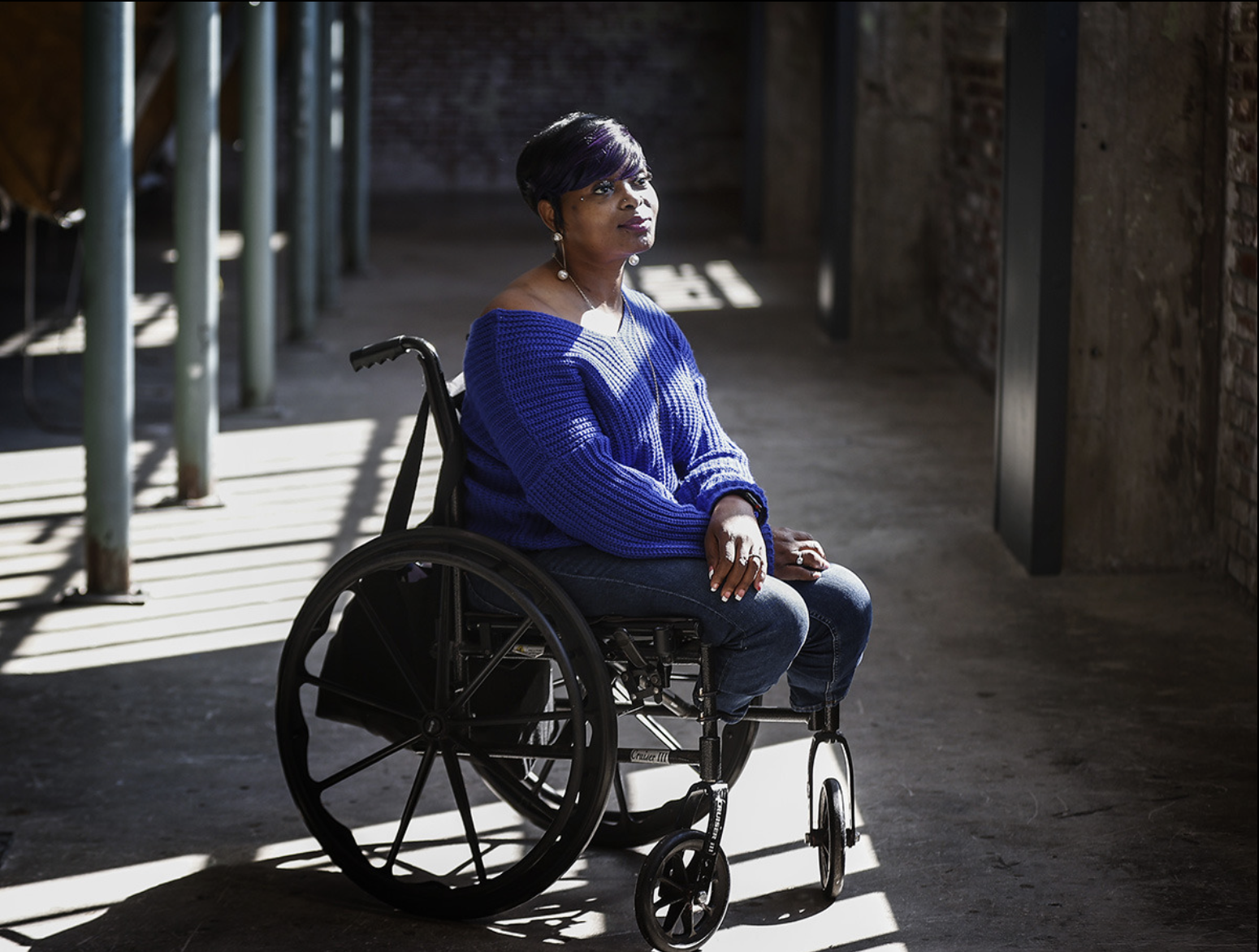Mental health issues complicate treatment for sickle cell patients

The Daily Memphian, by Aisling Mäki March 5, 2024: April Ward-McGrory is a sickle cell patient, double amputee and advocate for those living with sickle cell disease.Black patients in Memphis with sickle cell disease often report being misdiagnosed or treated as drug seekers when they show up in emergency rooms during pain crises.
An inherited blood disorder characterized by chronic pain, sickle cell disease is the most common genetic blood disorder in the United States, affecting about 100,000 people, according to The Centers for Disease Control and Prevention.
It occurs in one out of every 365 Black births, and one in 13 Black babies is born with sickle cell trait.
In Memphis, the majority of residents are Black and nearly a quarter of the population lives below the poverty line — meaning most sickle cell patients belong to marginalized communities.
They also have less access to comprehensive team care than patients with genetic disorders that are more prevalent among white populations, such as hemophilia and cystic fibrosis.
And sickle cell disease patients’ negative experiences lead to medical mistrust, overall health disparities and mental health conditions like depression and anxiety. But studies show physicians are less likely to detect mental health problems in Black Americans.
April Ward-McGrory, 42, had both legs amputated because of sepsis and nearly died several times from complications related to the disease.
“It hurts when you get mistreated by anybody in the emergency room,” she said. “It really hurts when it’s somebody you think is going to at least try to understand or be empathetic … all they see is my Black face and my sickle cell,” she said. “And right there, I’m just seen as drug seeking.”
Read more from Daily Memphian here.




